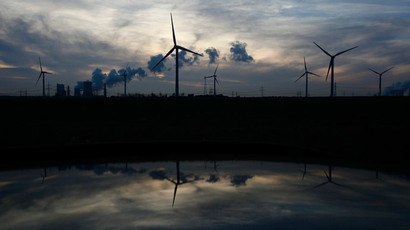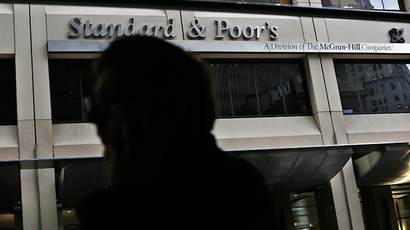Germany’s ‘wise men’ trim economic forecast for 2014, 2015
The German government panel of economic advisors cut its growth forecast this autumn to 1.2 percent from 1.9 percent. The group called “the five wise men” says “geopolitical tension” and “unfavorable conditions” are weighing on Europe’s strongest economy.
Next year Germany’s GDP is expected to expand by 1 percent, as Deutsche Welle quotes the report released Thursday.
Among the reasons eating into Germany’s growth are government policies such as a lower retirement age, and a €8.50 per hour minimum wage, the experts said.
However, the key problem for the German economy is its overreliance on exports, according to economist Jim O’Neil, the man who came up with the name BRIC to describe the fast growing developing economies.
“The deepest problem I refer to is that Germany is the fourth largest economy in the world; it shouldn’t be so dependent on exports. Germany should be a much bigger engine of economic activity for the eurozone,” he told RT.
The “wise men” panel called for the government to revise its policies as long as the German economy is savable.
READ MORE: Europe needs new policy to escape deeper crisis – BRIC ‘prophet’
Chancellor Angela Merkel said she would “seriously study” the recommendations but rejected the criticism of the minimum wage policy planned to be introduced next year.
"It's not easy to understand how a policy that has not yet come into force is dampening growth now," she said. Merkel put the blame for the economic slowdown on international crises.
On a more positive note, the robust jobs market would support domestic spending as the main potential for economic growth in Germany, the report said.














